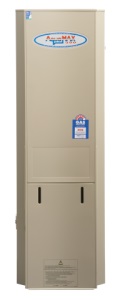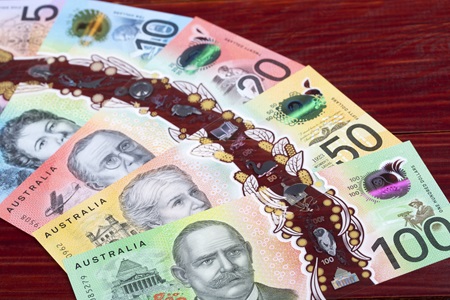Heat Pump or Gas Hot Water
Make the Smart Choice for Lower Bills in Victoria
Choosing between a heat pump and a gas hot water system can impact up to 30% of your household energy bill. While gas hot water systems are still common across Victoria, especially in older homes, they’re not always the most cost-effective option, especially with rising gas prices and generous government rebates for energy-efficient upgrades.
According to Sustainability Victoria, a typical three-person household using a 5-star gas storage system pays around $385–$445 per year in running costs. In comparison, a high-efficiency heat pump can deliver the same hot water for as little as $170 annually when operated on an off-peak tariff. That’s a potential saving of $200–$275 per year, or over $4,000 across the system’s lifespan.
And it’s not just about money, heat pumps produce less than half the greenhouse gas emissions of a standard gas system. That makes them a smart choice for both your wallet and the environment.
In this guide, we’ll break down how each system works, what installation involves, and which option best suits your home, budget, and long-term goals. Whether you’re renovating, building, or just looking to cut your energy bills, Harley Plumbing, your trusted plumber in Melbourne, has the answers.
How Each System Works: Gas vs Heat Pump
Gas and heat pump hot water systems operate in fundamentally different ways, which affects their efficiency, running costs, and environmental impact.
Gas Hot Water: Combustion and Flue Venting
Gas hot water systems heat water by burning natural gas or LPG. A burner located beneath the tank (or inside an instantaneous unit) transfers heat directly to the water. A thermostat monitors and maintains the desired temperature.
Because combustion produces carbon monoxide and other exhaust gases, proper flue venting is essential, especially for indoor units. In Victoria, all indoor gas storage systems must be flued in accordance with AS/NZS 5601 standards to safely expel gases outside the home. Common flue types include:
- Atmospheric flues (natural draft, vertical)
- Power flues (fan-assisted)
- Balanced or direct vent systems (sealed combustion)
- Incorrect flue installation can pose serious safety risks, including carbon monoxide exposure.
Heat Pump Hot Water: Reverse Refrigeration Cycle
Heat pumps don’t generate heat—they extract it from the surrounding air using a reverse refrigeration process. Here’s how it works:
- A fan draws in ambient air across an evaporator coil filled with refrigerant.
- The refrigerant absorbs heat and turns into a gas.
- A compressor increases the gas temperature.
- The hot gas passes through a heat exchanger, transferring heat to the water in the tank.
- The refrigerant cools, returns to a liquid, and the cycle repeats.
This process is highly efficient. Most heat pumps in Victoria achieve a Coefficient of Performance (COP) between 3.0 and 5.0, meaning they produce 3–5 units of heat for every unit of electricity consumed.
Energy Source: Gas vs Electricity
- Gas systems burn fossil fuels directly, making them vulnerable to rising gas prices and supply issues.
- Heat pumps use electricity to move heat—not create it—making them up to 75% more efficient than conventional electric systems.
- When powered by solar PV, heat pumps become even more cost-effective and environmentally friendly.
Sustainability Victoria classifies heat pumps as a form of solar water heating, since the heat they extract from the air ultimately comes from the sun.
Installation and Upfront Costs in Victoria

When comparing heat pump and gas hot water systems, it’s important to weigh both the initial investment and the long-term savings. While heat pumps cost more upfront, they often deliver better efficiency and lower running costs over time.
Heat Pump Installation Cost: $1,200–$5,500 (After Rebates)
Heat pumps are more expensive to install than gas systems, but Victorian rebates can significantly reduce the out-of-pocket cost.
- Typical installed cost (before rebates): $3,000–$5,500
- After rebates (VEU + STCs + Solar Victoria): as low as $1,200–$2,200, depending on eligibility and system type2
Factors that affect the final cost:
- Distance from switchboard (may require electrical upgrades)
- Site access and lifting requirements
- Whether you’re replacing an electric or gas system
- Plumbing modifications or relocation needs
Gas Hot Water Installation Cost: $1,500–$3,000
Gas systems are generally cheaper to install upfront, especially if you’re replacing an existing gas unit.
- Storage gas systems: $1,300–$2,500
- Instantaneous gas systems: $1,500–$3,000
- Labour for replacements: typically $500–$800
Cost variables include:
- Whether natural gas is already connected
- Choice of system (storage vs continuous flow)
- Brand, size, and energy rating
- Need for new gas lines or flueing
Installing a brand-new gas system (as opposed to a replacement) may require additional plumbing and gas fitting work, which can increase the total cost.
Installation Time and Complexity
- Gas systems are quicker to install—usually 2–3 hours for a like-for-like replacement.
- Heat pumps take longer—4–6 hours or more, especially if electrical upgrades or switchboard work is needed.
- Heat pumps also require adequate ventilation and clearance, which may limit placement options in smaller homes.
Both systems must be installed by a licensed plumber and electrician to meet Victorian safety and compliance standards.
Efficiency, Lifespan and Maintenance
When it comes to long-term value, heat pump hot water systems outperform gas systems in both energy efficiency and environmental impact, making them a smart investment for Melbourne homes.
Energy Efficiency: 70–90% (Gas) vs 300–400% (Heat Pump)
Gas hot water systems typically convert 70–90% of fuel energy into usable heat, depending on the model and age. In contrast, heat pumps achieve 300–400% efficiency, meaning they produce 3–4 units of heat for every unit of electricity consumed2.
This efficiency gap translates into real savings. According to Sustainability Victoria, a three-person household with a 5-star gas storage system pays around $395–$445 per year to run. A high-efficiency heat pump on an off-peak tariff can cost as little as $120 annually, saving up to $275 per year, or over $4,000 across 15 years.
Environmental Impact
- Gas systems emit around 8.5 tonnes of CO₂ over 10 years
- Heat pumps emit just 4.1 tonnes over the same period
That’s a 52% reduction in emissions, especially when paired with rooftop solar.
Lifespan: 10–15 Years
- Heat pumps typically last 12–15 years with proper maintenance
- Gas systems average 8–12 years, depending on usage and servicing
While both systems are durable, heat pumps often edge ahead in longevity, especially when installed by licensed professionals like Harley Plumbing.
Maintenance and Safety
Gas systems require more frequent and safety-critical maintenance:
- Annual inspection of burners and gas lines
- Anode rod replacement every 3–5 years
- Regular flue cleaning to prevent carbon monoxide buildup
Heat pumps need less frequent but targeted care:
- Clean air filters every 3–6 months
- Inspect evaporator coil and refrigerant levels annually
- Ensure adequate airflow around the unit
From a safety perspective, heat pumps are combustion-free, meaning no risk of gas leaks or carbon monoxide exposure, making them a safer choice for families.
Rebates, Incentives and Long-Term Savings
Heat pumps are more affordable than ever in Victoria, thanks to generous rebates and long-term energy savings that close the gap between heat pumps and gas hot water systems.
- Federal STC Rebates (Small-scale Technology Certificates)
STCs are a key federal incentive that reduces the upfront cost of installing a heat pump. Each certificate represents 1 megawatt-hour of displaced electricity and is typically applied as an upfront discount by your installer.
- Current STC value: $38–$40 per certificate
- Rebate amount: Varies by system size, efficiency, and your location (Melbourne is in STC Zone 4)
- Eligibility: All homeowners installing an approved system can claim STCs
Installers like Harley Plumbing handle the paperwork and apply the rebate directly to your quote.
Victorian Rebates (Solar Victoria + VEU)
Victorian households can combine multiple rebates to significantly reduce heat pump installation costs:
Solar Victoria Hot Water Rebate:
- Up to $1,000 for eligible heat pump systems
- Up to $1,400 for locally made systems (e.g. Dux, Reclaim Energy)
- Covers 50% of the purchase price after other discounts
Victorian Energy Upgrades (VEU) Program:
- Additional rebates of $500–$75,0, depending on your existing system
- Available when replacing electric or gas hot water systems
Combined, these rebates can reduce your out-of-pocket cost to as low as $1,200–$2,200 for a quality heat pump system.
Annual Savings: $300–$800+

Heat pumps are up to 75% more efficient than gas systems. A typical three-person household in Melbourne can:
- Cut hot water bills from $395–$445 (gas) to $120–$170 (heat pump)
- Save $275–$325 per year
- Save even more when paired with solar PV
Payback Period: 3–5 Years
Despite a higher upfront cost, heat pumps pay for themselves quickly:
- Average payback: 3–5 years
- Lifespan: 10–15 years
- Ongoing savings: $3,000–$5,000+ over the system’s life
- Bonus: Households that disconnect gas entirely (e.g. switch to induction cooking) can save an extra $300–$350 per year in gas supply charges
Quick Comparison
| Feature | Heat Pump Hot Water | Gas Hot Water |
| Setup Cost (after rebates) | $1,200–$2,500 | $1,500–$3,000 |
| Annual Running Cost | $120–$170 | $395–$445 |
| Efficiency | 300–400% | 70–90% |
| Greenhouse Emissions (10 yrs) | ~4.1 tonnes | ~8.5 tonnes |
| Lifespan | 10–15 years | 8–12 years |
| Safety | No combustion risks | Risk of gas leaks/CO |
| Payback Period | 3–5 years | N/A |
Making Your Decision: The Smart Choice for Lower Bills
Heat pumps are the clear long-term winner when compared to gas hot water systems in Victoria. While gas systems may appear cheaper upfront, typically costing $1,500–$3,000, heat pumps, even at $3,000–$5,500, quickly make up the difference through lower running costs and generous rebates.
The savings speak for themselves. A typical three-person household can cut hot water bills by $275–$325 per year, with total savings of $3,000–$5,000+ over the system’s lifespan. And with a payback period of just 3–5 years, heat pumps continue to deliver value well beyond the break-even point.
Environmentally, heat pumps also shine, producing less than half the greenhouse gas emissions of gas systems over 10 years. And because they don’t rely on combustion, they eliminate risks like gas leaks and carbon monoxide exposure.
Thanks to federal STC rebates and Victorian programs like Solar Victoria and VEU, heat pumps are now more accessible than ever. These incentives can reduce your upfront cost by $1,500–$2,500, making the switch even more appealing.
With 300–400% efficiency, lower emissions, and long-term savings, heat pumps are the smart, future-proof choice for Melbourne households looking to cut energy bills and reduce their environmental impact.
FAQs
Q1. How much can I save by switching to a heat pump water heater?
Victorian households can save $275–$325 per year on energy bills. Over 10–15 years, that adds up to $3,000–$5,000+ in savings.
Q2. What’s the upfront cost difference between heat pump and gas system?
Gas systems cost $1,500–$3,000 installed. Heat pumps range from $3,000–$5,500, but rebates can bring that down to $1,200–$2,200.
Q3. How efficient are heat pumps compared to gas?
Heat pumps operate at 300–400% efficiency, while gas systems average 70–90%. That means heat pumps use far less energy to deliver the same hot water.
Q4. Are heat pumps safer than gas systems?
Yes. Heat pumps don’t involve combustion, so there’s no risk of gas leaks or carbon monoxide. They do require good airflow, but are generally safer overall.
Q5. How long does it take to recoup the cost of a heat pump?
Most households recover their investment in 3–5 years through energy savings. After that, it’s all money in your pocket.




